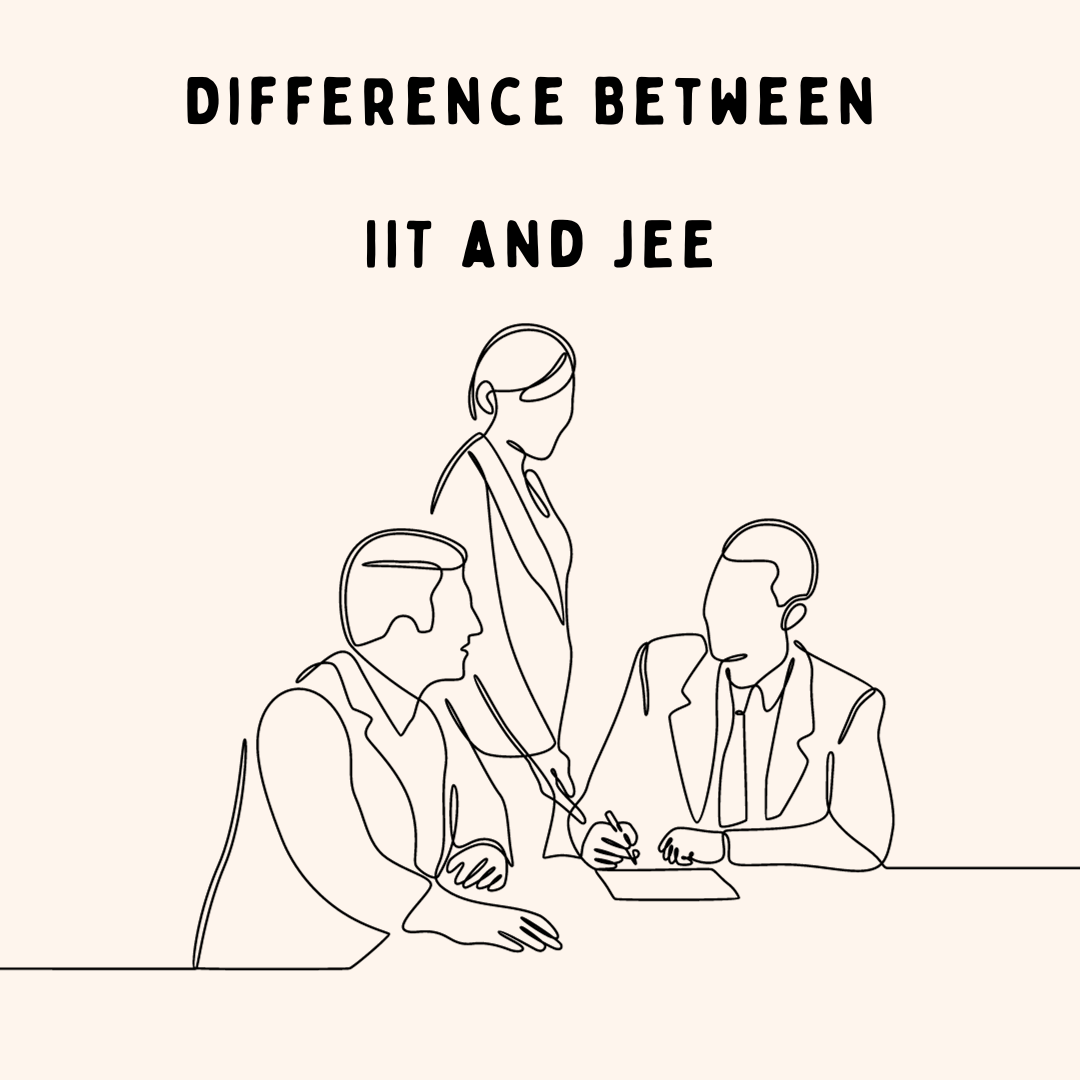Pursuing engineering is one of the most common choices in India. IIT and JEE are two standard methods of pursuing a career in engineering. However, applicants need help with troublesome queries related to both.
What is IIT?
IIT stands for Indian Institute of Technology. These public education institutions are spread across India and provide excellent coaching in multiple engineering fields, and have received various forms of recognition since their establishment.
What is JEE?
JEE stands for Joint Entrance Exam, facilitated by the National Testing Agency (NTA) of the Ministry of Human Resource Development. It is a centralized exam for enrolling into India’s most recognized institutions.
Key Difference Between IIT and JEE:-
The primary differences between IIT and JEE are:
- Enrolling in IIT doesn’t require undergoing an entrance exam.
- JEE is a centralized entrance exam for engineers to enter India’s most recognized institutions, whereas IIT is an educational center for engineering students.
Elaborative Difference Between IIT and JEE:-
1. Age Limit
The maximum age for enrolling into IIT is up to 25 years. On the other hand, aspirants who want to appear for JEE Main or Advanced have no age bars.
2. Eligibility
Aspirants who want to get into IIT must have at least 60% marks aggregate in Class 10th and 75% average in Class 12th. On the other hand, general category JEE candidates must have a 75% aggregate in Class 12th, and SC/ST should have an average of 65% in Class 12th.
3. Number of Attempts
JEE candidates can appear for the Main exam up to three times and the Advanced test for a maximum of two attempts. On the other hand, candidates appearing for IIT have a maximum attempt limit of three.
4. Syllabus
The JEE Main exam includes Class 11th and Class 12th topics: Physics, Mathematics, and Chemistry. Aspirants who want to crack the entrance test of IIT must study NCERT books of Class 11th and Class 12th.
5. Pathway
JEE Advanced can grant engineering aspirants admission into IITs of India. Meanwhile, IIT provides dual degree, B.Arch, and B.Tech courses. JEE preparators must clear the Main exam to become eligible for the Advanced exam and get admitted to NIITs, IITs, or other institutions funded by the central government of India.
6. Application Process
Candidates who want to appear for the IIT entrance exam must register on the official JoSAA website. On the other hand, JEE aspirants must fill out an online application for the JEE Main exam on the website after registration.
7. Counselling
Aspirants of IITs receive direct counseling through JoSAA faculty. On the other hand, the Central Seat Allocation Board or CSAB conducts counseling for JEE Main candidates.
Conclusion – IIT vs JEE
IIT-JEE is an all-India admission exam for pursuing undergraduate courses in planning, architecture, technology, and multiple engineering fields at the IIT centers. JEE Main exam is for aspirants who want to pursue undergraduate courses in science and engineering and is held by the Central Board of Secondary Education or CBSE. On the other hand, IITs are educational institutions located across India. The IIT Act of 1961, the IITs of India.
FAQs
1. What is the main difference between IIT and JEE?
Ans– IIT and JEE are two distinct entities in the Indian education system. IIT stands for Indian Institutes of Technology, a group of prestigious engineering institutions, while JEE refers to the Joint Entrance Examination, an entrance test for admission to various engineering colleges in India.
2. Is JEE the entrance exam for IITs?
Ans– Yes, JEE is the entrance exam for admission to IITs. The full name of the exam is JEE Advanced. To be eligible for JEE Advanced, students must first qualify for JEE Main, the first stage of the JEE entrance exam.
3. What is the difference between JEE Main and JEE Advanced?
Ans– JEE Main is a computer-based test that assesses a candidate’s knowledge of physics, chemistry, and mathematics. JEE Advanced is a more advanced test that further assesses these subjects in greater depth. Only the top scorers of JEE Main are eligible to appear for JEE Advanced.
4. What are the eligibility criteria for JEE Main?
Ans– To be eligible for JEE Main, candidates must have passed their Class 12 examination from a recognized board with physics, chemistry, and mathematics as compulsory subjects. They should also be less than 25 years of age for general category candidates and less than 30 years of age for SC, ST, and OBC-NCL category candidates.
5. What are the eligibility criteria for JEE Advanced?
Ans– To be eligible for JEE Advanced, candidates must be among the top 2.5% of successful candidates (general category) or top 5% of successful candidates (SC, ST, and OBC-NCL category) in JEE Main.
6. What is the selection process for IITs?
Ans– The selection process for IITs is based on the performance in JEE Advanced. Candidates are ranked based on their JEE Advanced score, and the top-ranked candidates are offered admission to IITs based on their preferences and availability of seats.
7. What is the average JEE Advanced score for IITs?
Ans– The average JEE Advanced score for admission to IITs varies depending on the specific IIT and the category of the candidate. However, in general, the average score for admission to IITs is typically above 200 out of 300.
8. What is the importance of IITs in India?
Ans– IITs are considered to be among the most prestigious engineering institutions in India and are known for their rigorous academic programs and highly qualified faculty. They produce a large number of graduates who go on to successful careers in engineering, technology, and other fields.
9. What are the career options for IIT graduates?
Ans– IIT graduates have a wide range of career options available to them. They can pursue careers in engineering, technology, research, management, and various other fields. They are also highly sought after by top companies in India and abroad.
